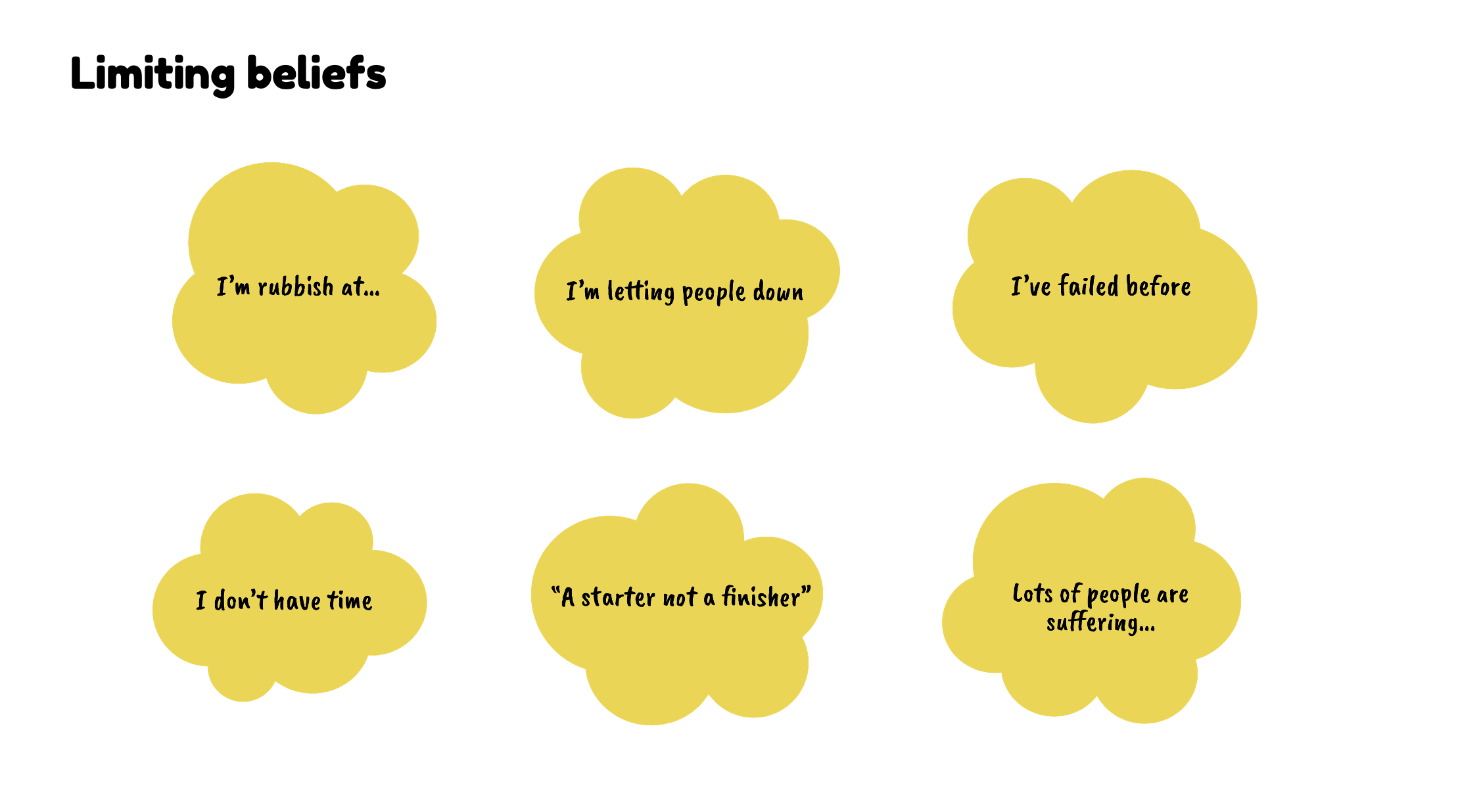We all have beliefs about ourselves that shape our thoughts, actions, and ultimately, our careers and lives. Some of these beliefs serve us well, while others hold us back from reaching our full potential. These restrictive thoughts are what we call “limiting beliefs.” Today, let’s explore how to identify and overcome these beliefs to foster personal growth and achievement, drawing inspiration from examples shared by Mary Myatt in interview with me, Dr Emma Kell.
Understanding Limiting Beliefs

Limiting beliefs are deeply ingrained thoughts or perceptions we hold about ourselves, others, or the world around us. They often form early in life based on our experiences and environment. We may be coming to realise that these beliefs about ourselves have become outdated and started to hinder our progress and happiness.
It’s crucial to understand that these beliefs are not inherently good or bad. They’re simply perspectives we’ve adopted over time. The key is recognising when these beliefs no longer serve us and finding the courage to challenge and reframe them.
Examples of Limiting Beliefs
Here are some anonymised examples cited by recent coachees:
 And here are a couple Mary and I discussed:
And here are a couple Mary and I discussed:
1. The Productivity Trap
I share a common limiting belief: the idea that to be successful, we must be busy all the time. This belief often manifests as “performative busyness” – the need to appear constantly occupied and overwhelmed.
I personally held this belief for years, thinking that as a business owner and teacher, I needed to always be visibly, sometimes performatively, busy. This led to multitasking, which ironically decreased my overall productivity and effectiveness. By challenging this belief, I learned that focused work and intentional rest are far more valuable than constant activity. I strive to embrace the ‘one thing at a time’ mantra.
2. The Suffering Comparison
Another limiting belief Mary discusses is the idea that one’s pain or struggles are invalid because “others have it worse.” This belief can be particularly challenging for those dealing with illness or mental health issues.
Mary gives an example of someone battling cancer who feels they don’t have the right to complain or feel anxious because “other people are suffering more.” This comparison minimizes personal experiences and can prevent seeking necessary support and care.
Reframing Limiting Beliefs

This coaching approach involves several steps to overcome limiting beliefs:
- Awareness: Recognise the belief and its impact on your life.
- Questioning: Challenge the validity of the belief. Is it based on fact or assumption?
- Reframing: Create a new, empowering belief that better serves your goals and wellbeing.
- Action: Act in accordance with your new belief to reinforce it.
Let’s apply this to the examples provided:
Productivity Belief:
– Old belief: “I must be busy all the time to be successful.”
– Reframed belief: “My success is measured by the value I create, not by how busy I appear.”
Suffering Comparison Belief:
– Old belief: “I don’t have the right to feel bad because others have it worse.”
– Reframed belief: “My feelings are valid, and acknowledging them allows me to address my needs and practice self-compassion.”
It’s essential to approach this process with self-compassion. Change takes time, and it’s normal to sometimes fall back into old thought patterns. The goal is progress, not perfection.
Moreover, Mary points out that reframing our beliefs often leads to a more balanced perspective. In the case of the suffering comparison, acknowledging our own pain doesn’t diminish the struggles of others. Instead, it allows us to cultivate genuine empathy – both for ourselves and for others.
As this coaching demonstrates, identifying and challenging limiting beliefs is a powerful step towards personal growth and fulfilment. By questioning the thoughts that hold us back and reframing them in a more empowering light, we open ourselves up to new possibilities and experiences.
Remember, this is a journey, and it’s okay to take it one step at a time. Whether you’re tackling beliefs about productivity, self-worth, or any other aspect of your life, approach the process with patience and kindness towards yourself. As you release these limiting beliefs, you may find yourself capable of achievements you never thought possible.
What limiting beliefs are you ready to challenge and reframe in your own life?

